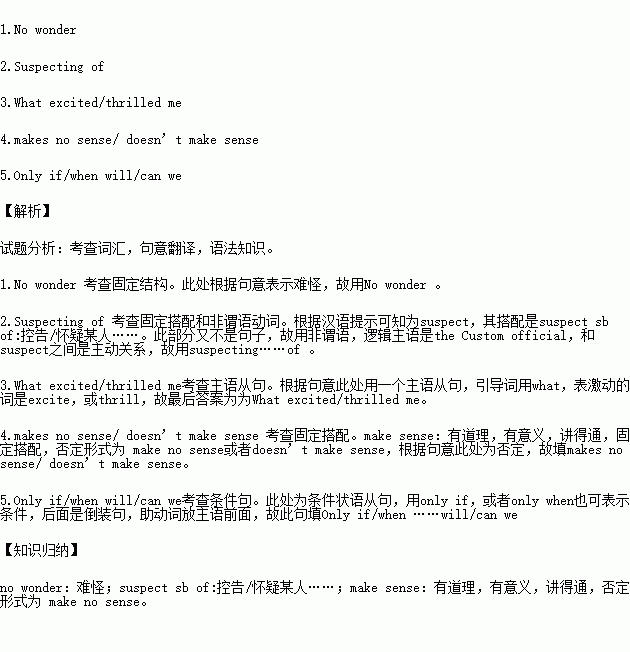题目内容
阅读下列各小题,根据汉语提示,在空格上填入恰当的词,使句子完整。
1.难怪她不饿,她整天都在吃糖果。
_______ _______ she is not hungry; she has been eating sweets all day.
2.海关怀疑那位旅客携带毒品,所以拦住了他并检查了他的行李。
_______ the traveller _______ carrying drugs, the Custom official stopped him and went through his suitcase.
3.让我激动的是有这么多的珍宝在展出。
_______ _______ _______ was that there were so many treasures on show.
4. 就为了省一点点钱而买最便宜的电脑是不明智的。
It _______ _______ _______ to buy the cheapest computer just to save a little money.
5.只有我们齐心协力,我们才能成功。
_______ _______ we pull together, _______ _______ achieve success.
练习册系列答案
相关题目

